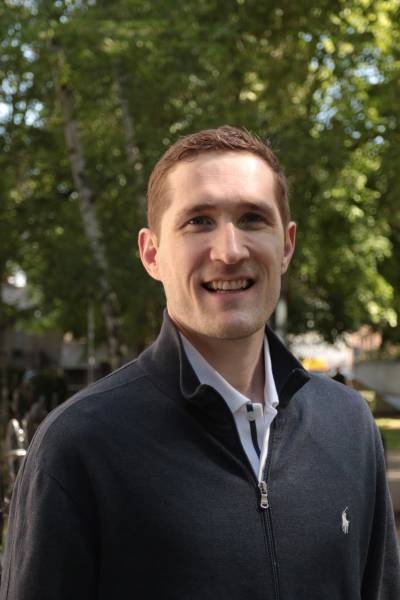Dr David Bann is an Associate Professor in Population Health in the Social Research Institute.
What attracted you to take up your position at IOE?
The interdisciplinary nature of the department (Social Research Institute) and our centre (the Centre for Longitudinal Studies).
How long have you been at IOE?
Since 2015; before that I worked in an MRC-funded research unit (MRC unit for Lifelong Health and Ageing), which also joined UCL; and before that a PhD in UCL (Epidemiology).
What do you most enjoy about your position and why?
I enjoy the mental stimulation of research and find teaching rewarding; research pushes me to continually improve and so do the students.
What working achievement or initiative are you most proud of?
I’m happy with some recent papers which try to do something a little bit different—even if doing so means the risk of failure is higher:
One of my papers, on risk factors relating to the variability of health outcomes as well as the mean, used a rarely used method (GAMLSS) to understand whether risk factors (or treatment effects) influence outcome variability as well as the average. It also included a free online tutorial to help future researchers that my colleague Liam Wright led on.
Another recent paper discusses methodological issues involved in comparative research (across time) and also includes a tutorial.
Moreover, I co-authored a paper that examines data from a study tracking people over 69 years to examine how genetics and socioeconomic factors may each influence body weight/obesity development.
What is the focus of your research and what benefits do you hope your discoveries and insights will bring?
I’m an epidemiologist, and research public-health related issues. I’m fundamentally interested in how society and its change influences human health. Ultimately better understanding this could help to improve our health and reduce unfair differences in health across society. Much of this research is interdisciplinary. For example, the study of health inequalities or how countries differ in the health of their populations. A particular focus is on obesity, but I’m also interested in health more broadly.
In recent work I’m seeking to use genetics. Both health and social outcomes seem to be ‘heritable’, but what does that mean? Nature vs nurture distinctions are unhelpful—the science of genetics has rapidly advanced, and it can seemingly be used to better understand the environment and inequality. I’m seeking to tackle these issues using genetic data combined with environmental data. I’m leading an MRC-funded project to utilise genetics in multiple cohorts to better understand health inequalities, and I am the academic lead for genetics in the Centre for Longitudinal Studies. The science of genetics has advanced rapidly, and it is important that it is used carefully and responsibly.
What is the most important thing you've learned from your students about the subject you teach?
The importance of being clear and enthusiastic. Of teaching the ‘intuition’ before complexities. Teaching epidemiology to social scientists during COVID was a surreal privilege.
Do you think being at UCL benefits your work and why?
A major benefit of UCL is the stimulating mixture of expertise. Our department has a broad range of social and health scientists. At the Centre for Longitudinal Studies we also run a series of globally unique cohort studies; and so there is an opportunity to contribute to future science far beyond my own research.
What might it surprise people to know about you?
My first publication at IOE was… science-related poems. Clear science writing is very condensed; poetry is perhaps the most condensed art form, so there is something of a connection even if rendered un-REFable!
Is there anything else you would like to add your experiences at IOE?
I like to walk and think, and Bloomsbury is a nice spot to do this. Good also to combine it with a trip to one of the nearby canteens—IOE, UCL, LSHTM, Birbeck, SOAS.
Last updated 3 August 2022.
 Close
Close


